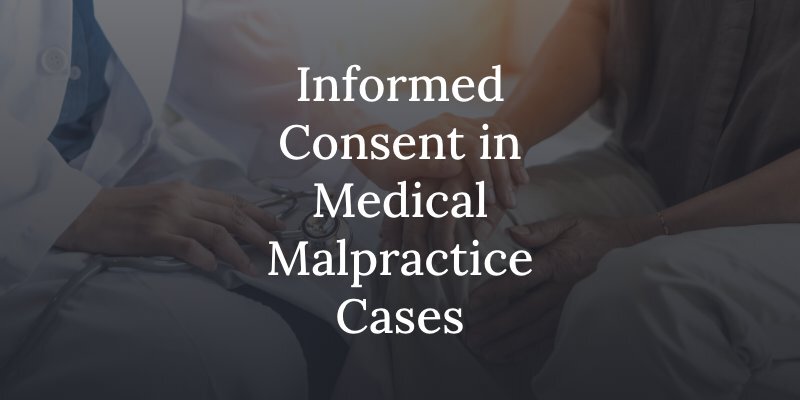Before a patient undergoes a medical procedure, the doctor or other provider must ensure that the patient knows exactly what to expect and what the procedure entails. The medical community describes informed consent as a “cornerstone of medicine,” intended to ensure that treatment decisions are made in an ethical and informed manner. When a patient isn’t adequately informed or a medical provider fails to obtain informed consent, it forms the basis of a medical malpractice claim.

What Is Informed Consent In Medical Treatment?
Informed consent in medical treatment is more than an ethical principle; it’s also an essential legal element in medical treatment. The term “informed consent” refers to the method of communication established between a medical provider and their patient to ensure that the patient is fully informed about the nature and details of a medical procedure or treatment before undergoing the treatment. Informed consent requires the provider to impart and the patient to understand the following:
- The potential benefits of the medical intervention
- The risks involved in the procedure or treatment
- Alternative treatment approaches
- The patient’s prognosis without treatment
When a patient gives consent for medical treatment, their providers have a legal obligation to ensure that it is an educated decision and that the patient has time to ask questions and receive answers before signing a document indicating their informed consent. Informed consent allows the patient to make critical decisions about their medical care, ensuring that the care they receive is in alignment with their goals and preferences. A patient may withdraw their consent at any time before or during their treatment.
When Is the Lack of Informed Consent Medical Malpractice?
Medical providers have a legal duty of care to ensure that their patient is fully informed before giving consent for a procedure. This duty includes the requirement to overcome potential barriers to the patient’s understanding of the procedure, including overcoming the following common obstacles:
- Language barriers
- A patient’s cognitive impairment
- Emotional distress on the part of the patient
Doctors and other medical providers must identify barriers to a patient’s full understanding and then implement the appropriate strategies to ensure they achieve effective informed consent. It is considered medical malpractice when a provider performs a procedure without first obtaining fully informed consent. This can occur when treatment is applied without the patient’s signature or when a patient signs consent forms without first being given and fully understanding all aspects of the treatment, including alternatives and the prognosis without treatment. Failure to obtain informed consent is medical malpractice.
Understanding Duty of Care In Medical Malpractice Cases Involving Informed Consent
Medical providers have a legal duty of care to their patients. Violating any aspect of the duty of care is medical malpractice. The standards of medical malpractice liability include the following:
- A doctor/patient relationship was in place at the time the malpractice occurred
- The doctor owed a legal duty of care to treat the patient at the level of care that’s accepted by the medical community
- They violated this duty of care
- The violation of duty directly caused injury or an adverse outcome to the patient
- The patient suffered economic and non-economic damages
A patient who suffers harm after undergoing a medical procedure or treatment without informed consent has the right to file a medical malpractice claim to recover compensation for damages, including additional medical expenses, lost earnings, and non-economic damages such as pain and suffering.
How Can a Medical Malpractice Lawyer Help Me?
If you feel that you did not give informed consent to medical treatment and suffered an adverse outcome, call the St. Louis injury lawyers at Miller & Hine for a free evaluation of your case, followed by prompt, assertive legal action to recover the compensation and sense of justice you deserve.

